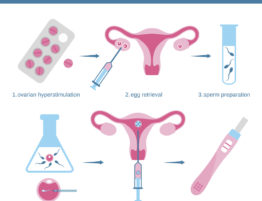Women who volunteer to carry a child for another family are generous and loving individuals. They knowingly agree to have an embryo transferred to their uterus in a brief out-patient procedure, and then gestate the growing fetus for the full term of a pregnancy. They are aware of the medical risks all deliveries present as well as the discomforts of pregnancy. All of this is because one prerequisite for women to be surrogates is having had their own child already.
While the initial interest and motivations vary, many surrogates choose to help another family because they have a close friend who recommended it. Agencies responsible for matching infertile couples with women willing to be surrogates spend a large portion of their budget on marketing and advertising. However, if you ask any reputable agency about most their leads, they will say referrals from past surrogates encouraging their friends to sign up. Business owners across all industries would likely agree the highest compliment clients can pay is a recommendation to others.
So, who are these initial surrogates telling their friends to participate? The average surrogate is in her late twenties or early thirties. She has had one or more children and feels her own family is complete. Likewise, this woman found pregnancy to be an easy and joyous experience and had no issues with delivery. This woman is sympathetic to would-be-parents who cannot carry a pregnancy on their own. When she is matched with the intended parents, she has reassurances they are on the same page as her about difficult topics like abortion and post-birth communication. Very likely, this surrogate feels a connection to the intended parents she is helping and is excited to provide them with the “gift” of gestation. She walks away from the experience satisfied and enthusiastic to encourage other women she knows to also act as surrogates.
Unfortunately, negative stereotypes paint a picture of a woman who is ill-prepared for the medical risks, who may smoke or drink while pregnant, and who is unable to understand the meaning of the contract she may not have even read. This myth also implies the woman is pregnant many times over and is strictly acting as a surrogate for financial gain. This fiction, frankly, makes my blood boil because of its total inaccuracy.
In California, no judge will sign a court order assigning parental rights to the infertile couple without complete assurances the surrogate involved is fully informed and is not being exploited. There are multiple checks throughout the matching process to ensure no one is taking advantage of either party. Before women can sign-up with an agency and connect with intended parents, they have an extensive psychological screening and evaluation. The screening often involves meeting a specially qualified psychologist and can last for several hours. In addition, the would-be-surrogate is required to have her own lawyer, like me, who will walk through the 50+ page contract, paragraph by paragraph. As far as repeat or career surrogates, I have worked on more than 400 matches and, in my observation, only a few elect to carry a surrogacy pregnancy for the third time. I have never heard of a four or five-time surrogate.
The compensation surrogates receive varies. Some desire to waive any fee because they are carrying for a close friend or family member. Others live in states that do not permit paid-surrogacy. In California, surrogates may be compensated. They tend to receive between $25,000 to $35,000 paid in monthly increments for as long as the woman is pregnant with modest compensation being paid at the outset for the initial embryo transfer. Surrogates’ typical involvement with a matching agency lasts at least one year to complete the requisite screenings and profiles, meet prospective intended parents, coordinate medical appointments, and wrap up all legal and insurance paperwork after the delivery. The compensation is aimed to alleviate the time and inconvenience of carrying a pregnancy. Candidly, for the “work” she does, I think surrogates should be compensated even more than this rate. Intended parents, no doubt, would say carrying a pregnancy for another person is a priceless affair and if they had the means, they would pay their gestational carrier millions to duly express their gratitude.



















